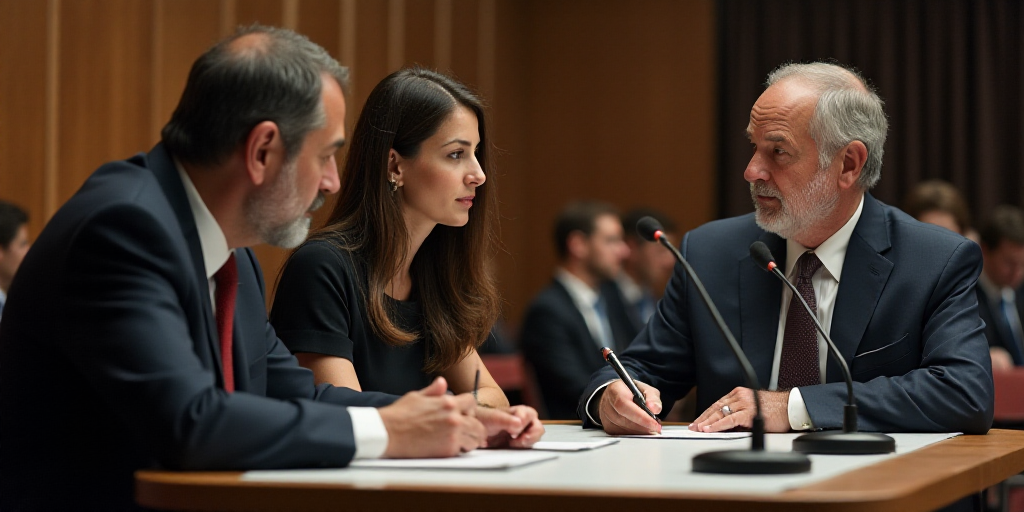Military Violations of Human Rights Continue in Mexico
In Mexico, 2024 saw the military forces continuing to commit human rights violations, including acts that could constitute extrajudicial executions. The public security has been increasingly militarized, and the state not only fails to guarantee no forced disappearances but also does not search for those who have gone missing. 2024 was a complex year for migrants and refugees, with judicial reform moving against judicial independence and extinguishing autonomous bodies such as the National Institute of Transparency, summarized Edith Olivares Ferreto.
Amnesty International’s Annual Global Report Highlights Mexico’s Challenges
During the presentation of Amnesty International’s (AI) annual global report on human rights, “The State of Human Rights in the World,” the Executive Director of the Mexican section stated that 2024 will be remembered as a particularly complex year for human rights in Mexico.
“On December 5, a court upheld the sentence against five members of the armed forces involved in the extrajudicial execution of Jorge Antonio Mercado Alonso and Javier Francisco Arredondo Verdugo,” the report cites.
Olivares Ferreto emphasized that Mexico’s transformation must center on the enforcement and respect for human rights for all individuals.
“We are still on time to change the structures and practices that allow authorities and state agents to systematically and broadly violate people’s rights. We need and demand political will to correct the course: no more journalists killed, no more feminicide victims, no more disappeared, and no more activist killings,” she asserted.
The activist explained that Mexican authorities continue to collaborate with the United States in implementing policies that undermine the right to seek asylum and the principle of non-refoulement.
“The northern border of Mexico has become increasingly dangerous for people awaiting an appointment to seek asylum in the United States, often falling victim to extortion or kidnapping and experiencing discrimination and gender-based violence from both state and non-state actors,” she added.
Forced Disappearances and Judicial Concerns
She highlighted that forced disappearance is undoubtedly one of the most pressing human rights violations affecting Mexicans.
“As of April 28 this year, there were 127,485 people registered as missing and unaccounted for. In just April of this year, 1,050 people have disappeared,” she pointed out.
Lamenting the state’s inaction in searching for the missing, she noted that families, especially women (mothers, daughters, wives, sisters), are the ones conducting the search efforts.
“Moreover, those searching face various forms of violence, harm, and risks: 29 family members of the disappeared have been killed between 2011 and 2025. In April of this year alone, four searchers have been killed: Teresa González Murillo, María del Carmen Morales, Jaime Daniel Ramírez Morales, and Marco Antonio Suástegui Muñoz,” she expressed.
Regarding the constitutional reform that allows for the popular election of judges, she criticized it for undermining judicial independence and the right to justice with due process, further exacerbating risks for all individuals seeking access to justice.
She condemned the constitutional changes approved by the Federal Congress between September and December of the previous year, including a reform that prevents even the Supreme Court of Justice of the Nation (SCJN) from challenging future constitutional amendments.
She also mentioned that the 2024 elections were the most violent in the country’s history, with at least 41 candidates killed while seeking public office.
Global Crossroads
In the preface, the report states that the world stands at a historic crossroads.
“The universal human rights ideal is facing relentless attacks from unprecedented forces attempting to destroy an international system forged with the blood and suffering of World War II and the Holocaust,” it cites.
The first 100 days of US President Donald Trump’s term have been marked by numerous attacks, including those against accountability for human rights violations, international law, and the UN.
“Let’s not be mistaken. It’s not just about President Trump. This has much deeper roots. Unless there is a concerted and courageous resistance, this historic crossroads will turn into a historical transformation: it won’t just be an era of change, but a change of era,” the report concludes.
Key Questions and Answers
- What are the main human rights concerns in Mexico in 2024? The primary issues include military human rights violations, forced disappearances, and the erosion of judicial independence due to recent reforms.
- What is the significance of the Amnesty International report? The annual global report by Amnesty International highlights Mexico’s challenges in upholding human rights, emphasizing the need for political will to address these issues.
- How have the 2024 elections been described? The 2024 elections were the most violent in Mexico’s history, with numerous candidates killed while seeking public office.
- What is the global context mentioned in the report? The world stands at a historic crossroads, with the universal human rights ideal facing relentless attacks from unprecedented forces.






